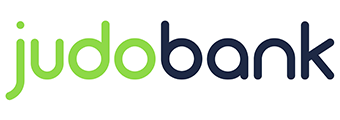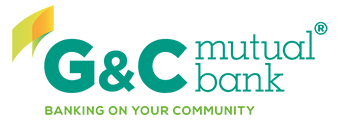Whether you are new to the investing game or a seasoned pro, it's not too often you hear government bonds mentioned as a significant investment option. Many Australians don't understand bonds nor do they consider them a 'sexy' investment option compared to stocks, property or even ETFs and Cryptocurrency. The lack of street appeal of government bonds may deter some, yet if properly utilised, government bonds can prove to be a valuable component of your investment portfolio.
What are government bonds?
There are two main types of bonds: government bonds - which is our primary focus - and corporate bonds.
Government bonds are a low-risk investment product, where you are essentially lending money to the government at a fixed interest rate. In return, you receive regular interest payments called coupon payments. If you hold the bond until maturity, you receive the face value of the bond back.
Government bonds are considered low-risk because you're lending to the government, which are unlikely to default on this debt. As an asset, bonds are generally considered to have the second-lowest risk, after cash in savings accounts or term deposits - which are protected by the government deposit guarantee. Theoretically, governments can raise taxes or create extra currency to meet their bond obligations at maturity.
Some Australian government bonds can be traded on the Australian Securities Exchange (ASX) as exchange-traded treasury bonds or exchange-traded treasury index bonds, but we'll go into more detail about these later.
How to purchase Australian government bonds
Institutional investors buy and sell Australian government bonds on what is known as the primary and secondary markets, but for everyday 'mum and dad' investors it's generally easier to invest in exchange-traded Australian government bonds on the ASX.
This can be done through a stockbroker, financial adviser, or through an online share trading account. These exchange-traded government bonds can be bought and sold on the ASX like shares. The ASX provides a comprehensive list of all government bonds.
There are two types of exchange-traded government bonds listed on the ASX:
-
Treasury bonds: medium-to-long term debt securities that use the same coupon interest method as discussed above.
-
Treasury indexed bonds: medium-to-long term bonds where the capital value is adjusted for movements in the Consumer Price Index (CPI) and interest is paid quarterly at a fixed rate.
Buying one unit of a bond on the ASX is the equivalent of $100.
Australian government bond interest rates
Unlike your traditional interest rates earned on a savings account or term deposit, bonds don't have standard interest rates. Instead, they are comprised of two components: the yield to maturity (YTM) and the coupon interest rate.
Yield to maturity on government bonds
Yield to Maturity is the rate of return on a bond if purchased at the current market price and held until the maturity date. The calculation of the yield assumes all coupon interest payments are reinvested at the same rate. Yield To Maturity will vary through time with changes in the price and the remaining term to maturity of the bond.
To explain this in further detail, suppose interest rates fall. New bonds that are issued will now offer lower interest payments. This makes existing bonds that were issued before the fall in interest rates more valuable because they offer higher interest payments compared to new bonds. As a result, the price of existing bonds will increase. However, if a bond's price increases, it is now more expensive for a new investor to buy. The bond's yield will then fall because the return an investor expects from purchasing this bond is now lower.
|
Bond |
Price |
Yield |
|---|---|---|
|
Australia Bond 2 Year Yield |
$105.07 |
0.53% |
|
Australia Bond 5 Year Yield |
$96.43 |
1.26% |
|
Australia Bond 10 Year Yield |
$94.67 |
1.57% |
|
Australia Bond 15 Year Yield |
$124.19 |
1.90% |
Source: Bloomberg, December 2021
Coupon interest rates on government bonds
The 'coupon' interest rate on a bond is a fixed rate set by the Australian Government for the life of the bond. This rate varies depending on the length of the bond.
|
Bond |
Coupon |
|---|---|
|
Australia Bond 2 Year Yield |
2.75% p.a. |
|
Australia Bond 5 Year Yield |
0.50% p.a. |
|
Australia Bond 10 Year Yield |
1.00% p.a. |
|
Australia Bond 15 Year Yield |
3.75% p.a. |
Source: Bloomberg, December 2021
Investing $100 into a hypothetical government bond with a 2.75% p.a. coupon interest rate would pay you $1.375 every six months, before paying your $100 back at the end of the bond's term.
There are some bonds that have a floating rate - that is, the rate changes with fluctuations in benchmark interest rates. If interest rates drop the value of your bonds will increase, and vice versa. These types of bonds have the potential for greater highs but also significant lows.
Expected government bond returns
According to the ASX's 2018 Long-Term Investing Report, Australian fixed income also (the asset class bonds belong to) averaged returns of 6.20% p.a. over the past 10 years, which is less than Australian residential property (8.00% p.a.) but more than Australian shares (4.00% p.a.) over a period which encompassed the global financial crisis.
Source: IbisWorld
Are government bonds risk-free?
Government bonds are one of the safest investment options since no Australian government has ever defaulted on its debt. However, bonds are never entirely risk-free. You'll generally always receive the face value of your bond back if you hold it until maturity. If you sell your bonds before maturity, then the bond will be sold at the current market value, which is defined as the price people are willing to pay for it. This price will depend on both inflation and interest rates, so you could theoretically make a capital gain or loss on a bond if you sell it before it reaches maturity.
Bonds are classed as a defensive asset because they can reduce your portfolio's vulnerability to share market returns. Before committing to government bonds, seek out professional financial advice from a financial adviser or related finance professional to determine whether you should add government bonds to your investment portfolio.
Bond alternatives
Corporate bonds
Corporate bonds operate in a similar way to government bonds, except you lend money to finance business activities. In return for money, the company issuing the bond pays you the regular interest plus the initial principal at the maturity date.
You can purchase corporate bonds through a public offering or through the ASX. Corporate bonds can produce greater returns than government bonds but have a higher degree of risk, since companies seeking to raise money can run into difficulties at any time. Like any product, you should do perform research on a company before buying a corporate bond from them by looking into their financial performance, the debt-to-equity (gearing) ratio and their ability to pay interest on their debts.
If the company becomes insolvent, you may not get any of your money back!
Insurance bonds
Insurance or investment bonds are a long-term investment offered by insurance companies, designed to be held for at least 10 years. They're similar to managed funds in that your money is pooled together with other investors, with a portion of these funds then invested in something that each investor chooses, between cash, fixed interest, shares, infrastructure, property and more.
If no withdrawals are made on the investment bond in the first ten years and you limit your contributions to up to 125% of your previous investment every year, then the bond will be tax-free, according to ASIC. You can learn more about insurance bonds and their tax implications, through MoneySmart's online guide.
Savings accounts & term deposits
You might think that bonds are essentially the same product as savings accounts and term deposits given their similarities, but they're really quite different. The latter serves a primary purpose as savings vehicles more so than investments. Due to the present low cash-rate environment, you're not going to see any spectacular returns on either savings accounts or term deposits - the infographic below shows what you can expect. By contrast, bonds can produce higher returns in exchange for slightly higher risk. Both of them offer near-certainty of returns, but bonds give you the flexibility of a greater range of choice.
If you're looking to save for a short-term goal, then either a savings account or a term deposit is probably your best bet. These two options also come with a government guarantee of $250,000, meaning that under the financial claims scheme up to $250,000 of your savings will be returned to you in the extremely unlikely event your institution collapses.
|
|
Investment |
|
|---|---|---|
|
|
Cash (Savings accounts & term deposits) |
Bonds |
|
Risk |
Low |
Low/Medium |
|
Capital Growth |
- |
Limited |
|
Potential returns |
Low |
High |
|
Investment time horizon |
Short & long |
Long |
|
Liquidity |
Varies - Savings accounts can be withdrawn from at will, but term deposits may require a notice period. |
High - You can enter and exit daily. |
|
Diversification |
Low - choice is limited to institutions and the interest rates they provide. |
High - different types of bonds (fixed-rate, inflation-linked) with varying yields. |
Equities
More commonly known as stocks, equities are quite different to bonds, although with corporate bonds both of them invest in companies in different ways. When referring to the stock market, equities are simply shares in the ownership of a company. So when a company offers equities, it's selling partial ownership in the company. On the other hand, when a company issues bonds, it's taking loans from buyers.
People invest in equities because of their potential for high returns. In your investment portfolio, your "equity exposure" is another way of describing your exposure to the risk that you will potentially lose money if the value of the stocks you own declines.
Here are some ways you can invest in stocks:
-
Individual stocks: you can buy ASX listed stocks through a stockbroker or online share trading platform
-
Exchange-traded funds (ETFs): a type of investment that buys and tracks a group of stocks, giving enhanced diversification in exchange for slightly lower average returns
-
Managed funds: your money is pooled together with other investors and actively managed by a fund manager, who buys and sells stocks on your behalf.
Savings.com.au's two cents
When considering an investment portfolio, it's easy to get caught up in the modern-day hype of ETFs and the stock market. However, don't forget about the merits of bonds when considering a secure investment option. Shares and property might be flashier, but bonds have a good mix of decent returns and lower risk. Given the turbulence the share and property markets have experienced recently, having defensive assets like bonds and other fixed-income assets in your portfolio can provide some much-needed stability.
Consider consulting a financial advisor before making any investment decisions and keep in mind that past performance is not an indicator of future performance.
First published January 17, 2019 by William Jolly. Updated December 23, 2021.
Image by Austin Distel via Unsplash








 Denise Raward
Denise Raward


 William Jolly
William Jolly
 Harry O'Sullivan
Harry O'Sullivan

